
Maths Problem Solving Year 6
¥127.43
Maths Problem Solving - Year 6 is the sixth book in the Maths Problem Solving series. The books have been written for teachers to use during the numeracy lesson. They cover the 'solving problem' objectives from the numeracy framework. This book contains three chapters; Making decisions, Reasoning about numbers or shapes and Problems involving 'real life', money or measures. The books are designed in such a way that each section has six stages of questions to be worked through. Every stage is split into three levels, for example 1a, 1b or 1c, based on achievement. Each corresponding question from these levels follow the same line of questioning, so that when the teacher talks about a certain question, the solution process is the same for each level but the complexity of the sum varies.
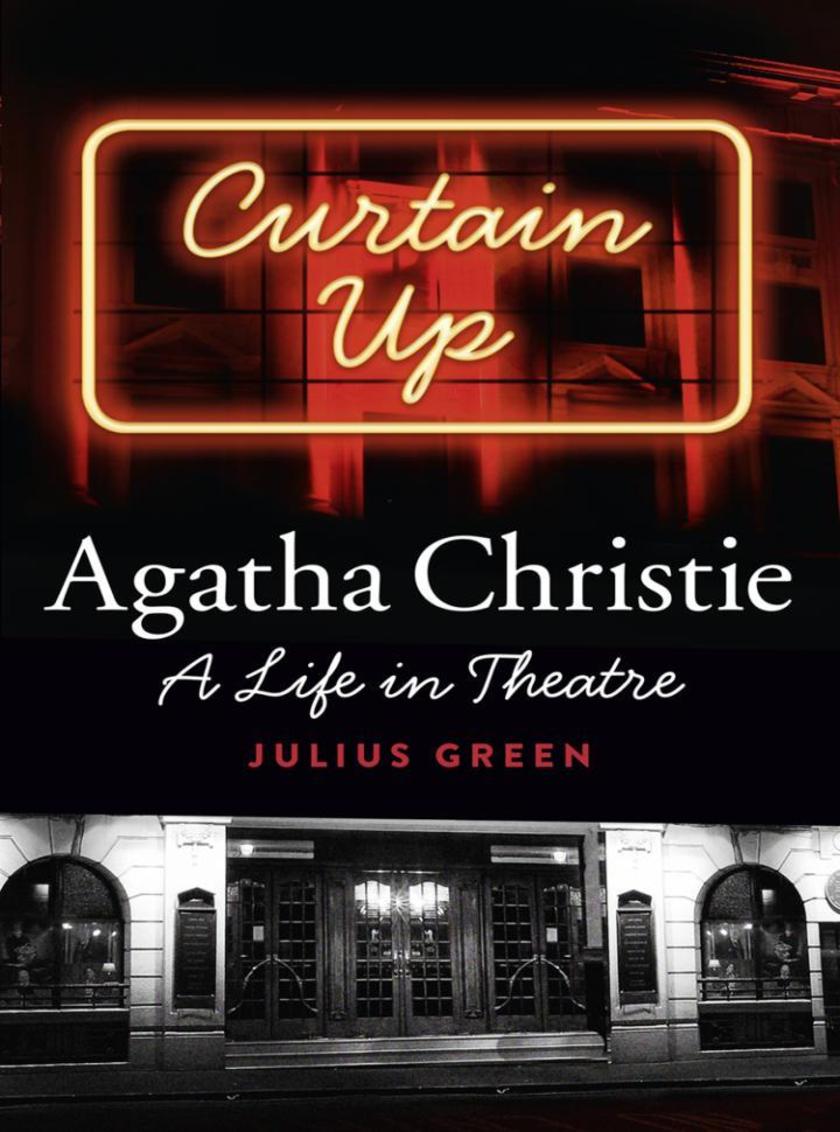
Curtain Up: Agatha Christie: A Life in Theatre
¥125.18
A revealing and witty new examination of how Agatha Christie became the world’s most successful and popular female playwright, including details of never-before-published *s and stories. Published in celebration of Agatha Christie's 125th birthday, Curtain Up! is an essential purchase for Agatha Christie fans worldwide. Everyone knows that The Mousetrap is the world’s longest-running play, but this first ever book dedicated to Agatha Christie as a playwright tells how Christie prevailed against the male-dominated establishment to be the only woman to have three plays in the West End at the same time and became the most popular and successful female playwright in the world. Author and theatre producer Julius Green has been given unprecedented access to archives in the UK and USA and has uncovered unpublished and unperformed plays, as well as previously unknown facts and correspondence. Agatha Christie was a skilful and accomplished stage writer, and this long-awaited book is a fascinating, funny and revealing tale that theatregoers and Agatha Christie fans won't want to miss.
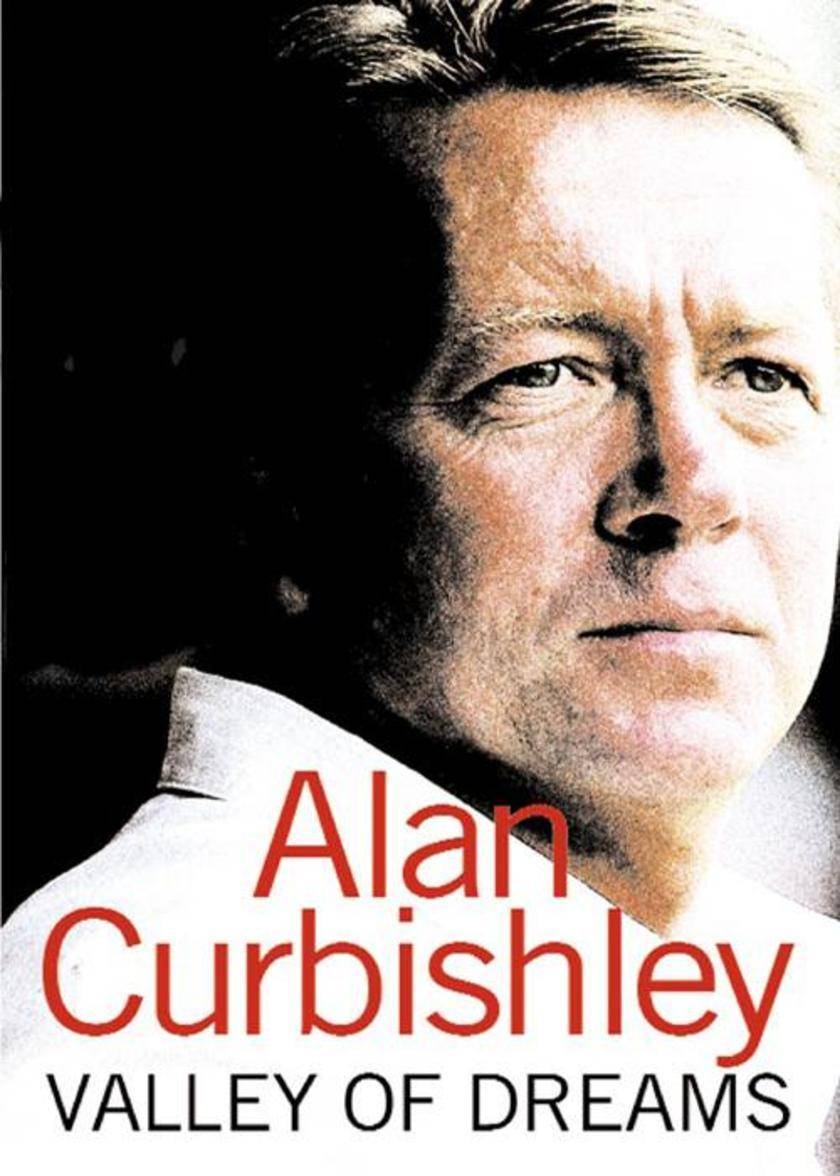
Valley of Dreams (Text Only)
¥125.18
Charlton Athletic represent a model of how a Premiership football club should be run. Former manager Alan Curbishley reveals the secrets of the club’s success – from the boardroom and manager’s office down to the dressing room and pitchside – and reflects on how the club went from homeless strugglers to challenging football’s elite. Alan Curbishley encountered most of football's ill winds during the 15 years he was coach, co-manager, then sole manager of Charlton – a club once homeless, with gates of less than 3000, forced to sell players to pay the wages and to buy replacement kit for the first team, and teetering on the brink of extinction. Galvanised by fans, staff, forward-thinking board members and a shrewd manager, the Addicks now find themselves firmly established with the Premiership big boys and a shining example of how a successful football club should be run. In his book, Curbishley opens the lid on the soap opera that is Charlton FC. He writes about the political manoeuvrings behind the club's departure and then emotional return to The Valley. He describes how the they were torn asunder by drugs allegations involving three of its players, including a youthful Lee Bowyer. He re-lives the tortuous rollercoaster ride of falling out of the Premiership two years later before returning in 1999/2000. And he gives an insider's view of the club's success in establishing itself in the world’s toughest league, including a full update on their 2005/06 season. He also talks candidly about being shortlisted for the England manager’s job. His book is a radical insight into the workings of a football club and its staff, and is sure to attract widespread interest from football fans across the country. Note that it has not been possible to include the same picture content that appeared in the original print version.
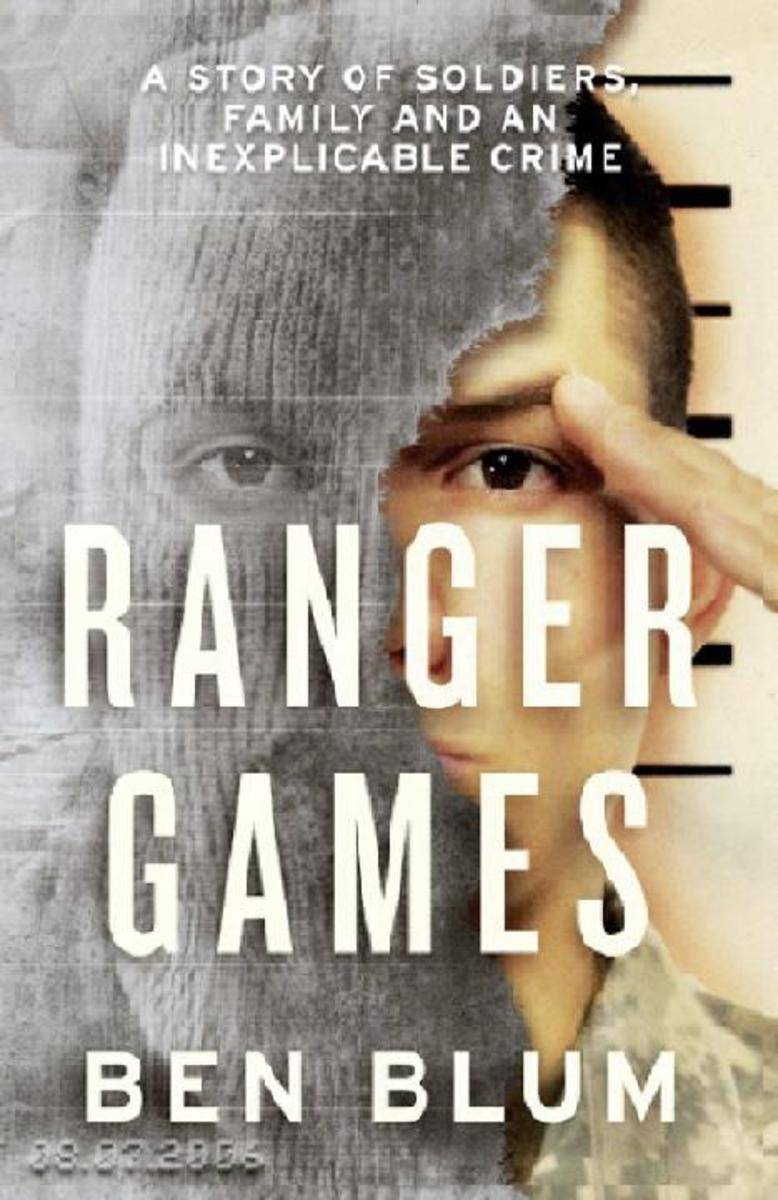
Ranger Games: A Story of Soldiers, Family and an Inexplicable Crime
¥125.18
A tense and layered true-crime story about an all-American soldier boy turned bank robber Alex Blum was a clean-cut all-American kid with one unshakeable goal in life: to serve his country in the military. He was accepted into the elite Rangers regiment, but on the first day of his leave before deployment to Iraq, Alex got into his car with two fellow soldiers and two strangers, drove to a local bank in Tacoma, and committed armed robbery. The Blum family was devastated and mystified. How could he have done such a thing? Alex’s attorney presented a defence based on the theory that trainee Rangers are indoctrinated on a level akin to the brainwashing in an extreme religious cult, and Alex insisted that he had believed the robbery was just another exercise in the famously daunting Ranger program. But Luke Elliot Sommer, the charismatic soldier behind the robbery, maintained that Alex knew exactly what he was doing, and had, in fact, planned it all with him. Who was lying? What had happened to Alex during those gruelling months of training? How accountable was he?

The Wife’s Tale: A Personal History
¥125.18
The extraordinary story of an indomitable 95-year-old woman – and of the most extraordinary century in Ethiopia’s history. A new Wild Swans A hundred years ago, a girl was born in the northern Ethiopian city of Gondar. Before she was ten years old, Yetemegnu was married to a man two decades her senior, an ambitious poet-priest. Over the next century her world changed beyond recognition. She witnessed Fascist invasion and occupation, Allied bombardment and exile from her city, the ascent and fall of Emperor Haile Selassie, revolution and civil war. She endured all these things alongside parenthood, widowhood and the death of children. The Wife’s Tale is an intimate memoir, both of a life and of a country. In prose steeped in Yetemegnu’s distinctive voice and point of view, Aida Edemariam retells her grandmother’s stories of a childhood surrounded by proud priests and soldiers, of her husband’s imprisonment, of her fight for justice – all of it played out against an ancient cycle of festivals and the rhythms of the seasons. She introduces us to a rich cast of characters – emperors and empresses, scholars and nuns, Marxist revolutionaries and wartime double agents. And through these encounters she takes us deep into the landscape and culture of this many-layered, often mis-characterised country – and the heart of one indomitable woman.
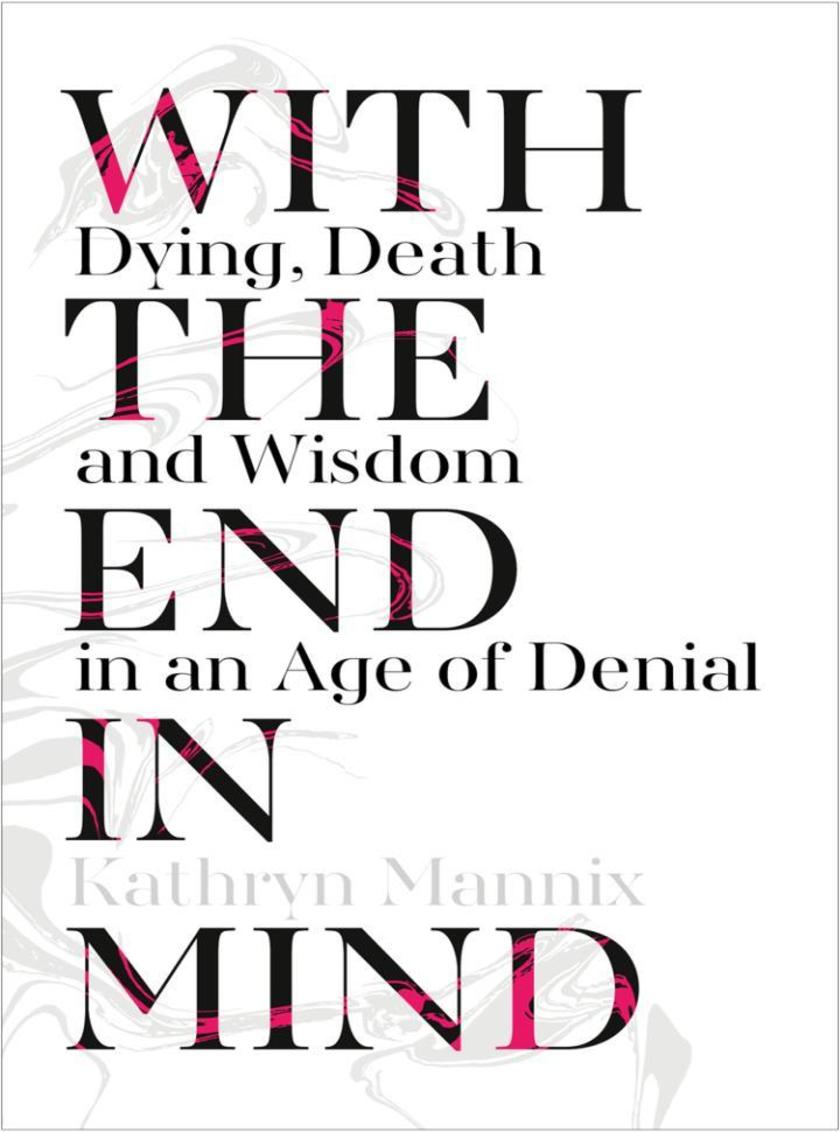
With the End in Mind: Dying, Death and Wisdom in an Age of Denial
¥125.18
In this unprecedented book, palliative medicine pioneer Dr Kathryn Mannix explores the biggest taboo in our society and the only certainty we all share: death. A SUNDAY TIMES BESTSELLER SHORTLISTED FOR THE WELLCOME BOOK PRIZE Told through a series of beautifully crafted stories taken from nearly four decades of clinical practice, her book answers the most intimate questions about the process of dying with touching honesty and humanity. She makes a compelling case for the therapeutic power of approaching death not with trepidation but with openness, clarity and understanding. With the End in Mind is a book for us all: the grieving and bereaved, ill and healthy. Open these pages and you will find stories about people who are like you, and like people you know and love. You will meet Holly, who danced her last day away; Eric, the retired head teacher who, even with Motor Neurone Disease, gets things done; loving, tender-hearted Nelly and Joe, each living a lonely lie to save their beloved from distress; and Sylvie, 19, dying of leukaemia, sewing a cushion for her mum to hug by the fire after she has died. These are just four of the book’s thirty-odd stories of normal humans, dying normal human deaths. They show how the dying embrace living not because they are unusual or brave, but because that’s what humans do. By turns touching, tragic, at times funny and always wise, they offer us illumination, models for action, and hope. Read this book and you’ll be better prepared for life as well as death.

Microadventures: Local Discoveries for Great Escapes
¥125.18
‘Enthusiastic, pleasingly madcap’ Geographical Adventure – something that’s new and exhilarating, outside your comfort zone. Adventures change you and how you see the world, and all you need is an open mind, bags of enthusiasm and boundless curiosity. So what’s a microadventure? It’s close to home, cheap, simple, short and 100% guaranteed to refresh your life. A microadventure takes the spirit of a big adventure and squeezes it into a day or even a few hours. The point of a microadventure is that you don’t need lots of time and money to meet a new challenge. This practical guide is filled with ideas for microadventures – for you to experience on your own or with friends and family – and over 150 stunning photographs, plus tips and advice on safety and kit. Whether it’s sleeping on a hilltop or going for a wild swim, cycling a lap of the Isle of Wight or walking home for Christmas, it’s time you discovered something new about yourself and the world outside your window. Adventure is everywhere, every day and it is up to us to find it.

Unqualified
¥125.18
Anna Faris has advice for you. And it’s great advice, because she’s been through it all, and she wants to tell you what she’s learned. After surviving an awkward childhood (when she bribed the fastest boy in the third grade with ice cream), navigating dating and marriage in Hollywood, and building a podcast around romantic advice, Anna has plenty of lessons to share: Advocate for yourself. Know that there are wonderful people out there and that a great relationship is possible. And, finally, don’t date magicians. Her comic memoir, Unqualified, shares Anna’s candid, sympathetic, and entertaining stories of love lost and won. Part memoir―including stories about being “the short girl” in elementary school, finding and keeping female friends, and dealing with the pressures of the entertainment industry and parenthood―part humorous, unflinching advice from her hit podcast, Anna Faris Is Unqualified, the book will reveal Anna’s unique take on how to master the bizarre, chaotic, and ultimately rewarding world of love. Hilarious, honest, and useful, Unqualified is the book Anna’s fans have been waiting for.

57 Ways to Screw Up in Grad School
¥123.61
Don't think about why you're applying. Select a topic for entirely strategic reasons. Choose the coolest supervisor. Write only to deadlines. Expect people to hold your hand. Become "e;that"e; student.When it comes to a masters or PhD program, most graduate students don't deliberately set out tofail. Yet, of the nearly 500,000 people who start a graduate program each year, up to half will never complete their degree. Books abound on acing the admissions process, but there is little on what to do once the acceptance letter arrives. Veteran graduate directors Kevin D. Haggerty and Aaron Doyle have set out to demystify the world of advanced education. Taking a wry, frank approach, they explain the common mistakes that can trip up a new graduate student and lay out practical advice about how to avoid the pitfalls. Along the way they relate stories from their decades of mentorship and even share some slip-ups from their own grad experiences.The litany of foul-ups is organized by theme and covers the grad school experience from beginning to end: selecting the university and program, interacting with advisors and fellow students, balancing personal and scholarly lives, navigating a thesis, and creating a life after academia. Although the tone is engagingly tongue-in-cheek, the lessons are crucial to anyone attending or contemplating grad school. 57 Ways to Screw Up in Grad School allows you to learn from others' mistakes rather than making them yourself.
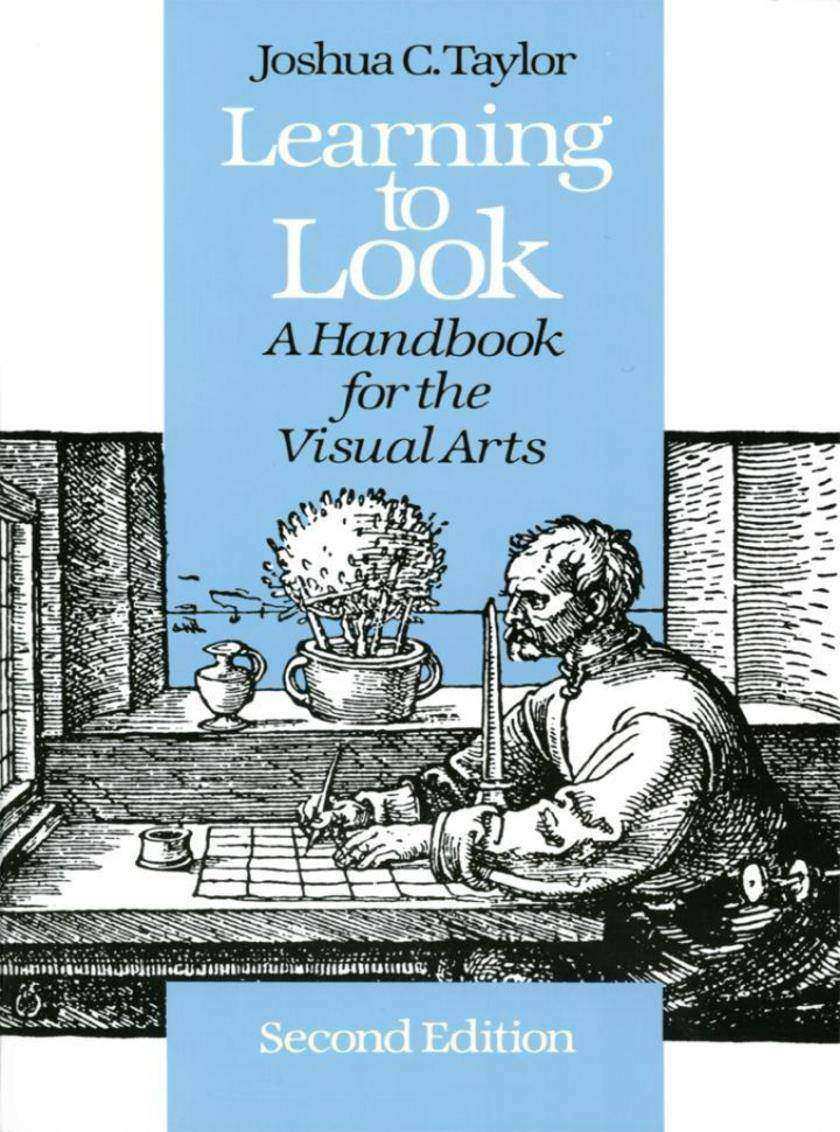
Learning to Look
¥123.61
Sometimes seeing is more difficult for the student of art than believing. Taylor, in a book that has sold more than 300,000 copies since its original publication in 1957, has helped two generations of art students "e;learn to look."e;This handy guide to the visual arts is designed to provide a comprehensive view of art, moving from the analytic study of specific works to a consideration of broad principles and technical matters. Forty-four carefully selected illustrations afford an excellent sampling of the wide range of experience awaiting the explorer.The second edition of Learning to Look includes a new chapter on twentieth-century art. Taylor's thoughtful discussion of pure forms and our responses to them gives the reader a few useful starting points for looking at art that does not reproduce nature and for understanding the distance between contemporary figurative art and reality.

O, How the Wheel Becomes It!
¥123.61
The first novel Anthony Powell published following the completion of his epic A Dance to the Music of Time, O, How the Wheel Becomes It! fulfills perhaps every author's fantasy as it skewers a conceited, lazy, and dishonest critic. A writer who avoids serving in World War II and veers in and out of marriage, G. F. H. Shadbold ultimately falls victim to the title's spinning-and righteous-emblem of chance. Sophisticated and a bit cruel, Wheel's tale of posthumous vengeance is, nonetheless, irresistible.Written at the peak of the late British master's extraordinary literary career, this novel offers profound insight into the mind of a great artist whose unequaled style, ear for dialogue, and eye for irony will delight devotees and new readers alike.

Walking
¥123.61
Thomas Bernhard is "e;one of the masters of contemporary European fiction"e; (George Steiner); "e;one of the century's most gifted writers"e; (Newsday); "e;a virtuoso of rancor and rage"e; (Bookforum). And although he is favorably compared with Franz Kafka, Samuel Beckett, and Robert Musil, it is only in recent years that he has gained a devoted cult following in America.A powerful, compact novella, Walking provides a perfect introduction to the absurd, dark, and uncommonly comic world of Bernhard, showing a preoccupation with themes-illness and madness, isolation, tragic friendships-that would obsess Bernhard throughout his career. Walking records the conversations of the unnamed narrator and his friend Oehler while they walk, discussing anything that comes to mind but always circling back to their mutual friend Karrer, who has gone irrevocably mad. Perhaps the most overtly philosophical work in Bernhard's highly philosophical oeuvre, Walking provides a penetrating meditation on the impossibility of truly thinking.
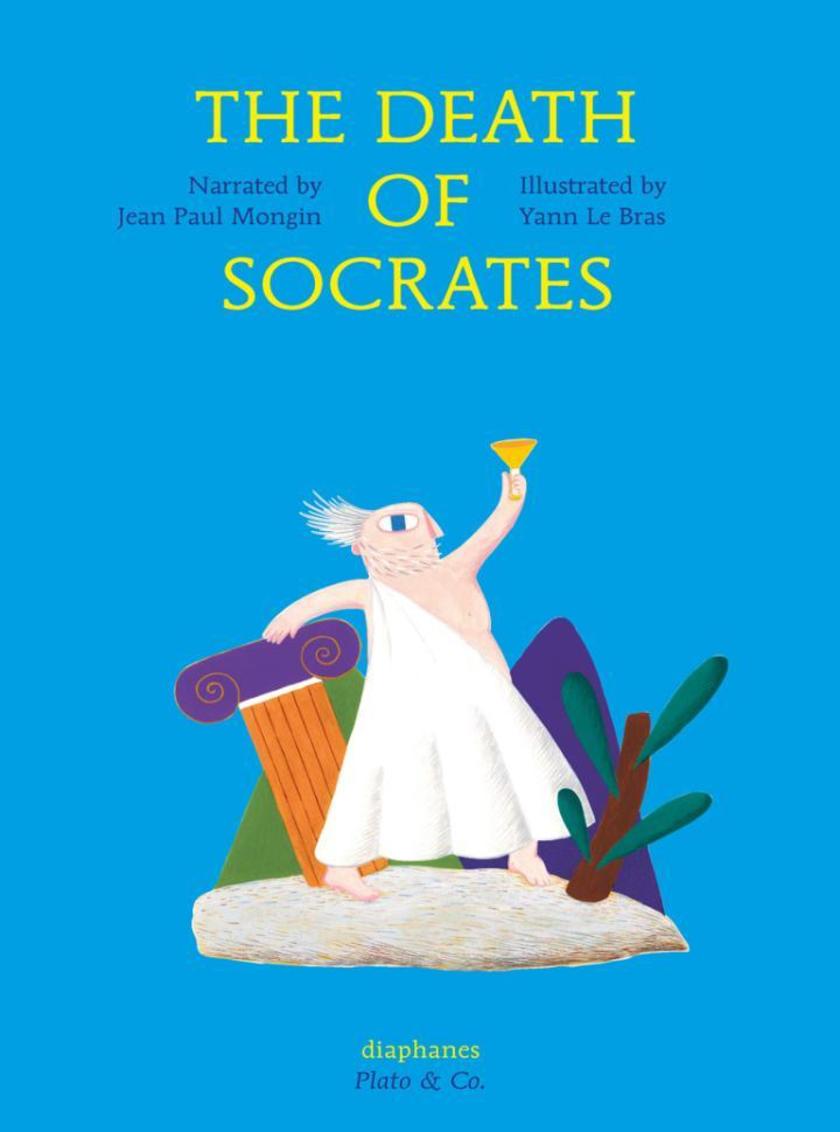
Death of Socrates
¥123.61
At its most basic, philosophy is about learning how to think about the world around us. It should come as no surprise, then, that children make excellent philosophers! Naturally inquisitive, pint-size scholars need little prompting before being willing to consider life's "e;big questions,"e; however strange or impractical. Plato & Co. introduces children-and curious grown-ups-to the lives and work of famous philosophers, from Descartes to Socrates, Einstein, Marx, and Wittgenstein. Each book in the series features an engaging-and often funny-story that presents basic tenets of philosophical thought alongside vibrant color illustrations."e;Tell us, Delphic Oracle, who is the wisest man in all of Greece?"e; So begins The Death of Socrates. No mortal man is wiser than Socrates, who, on his daily walks through Athens, talks to all the people he meets. When the person he talks to takes himself to be very wise, Socrates asks so many questions that the person ends up admitting he knows nothing. When he runs into people who know little, Socrates sets them on the way to wisdom. But not everyone shares Socrates's love for the truth. When the people of Athens become angry with him for his ceaseless questioning, how will he find the courage to continue to speak the truth Plato & Co.'s clear approach and charming illustrations make this series the perfect addition to any little library.
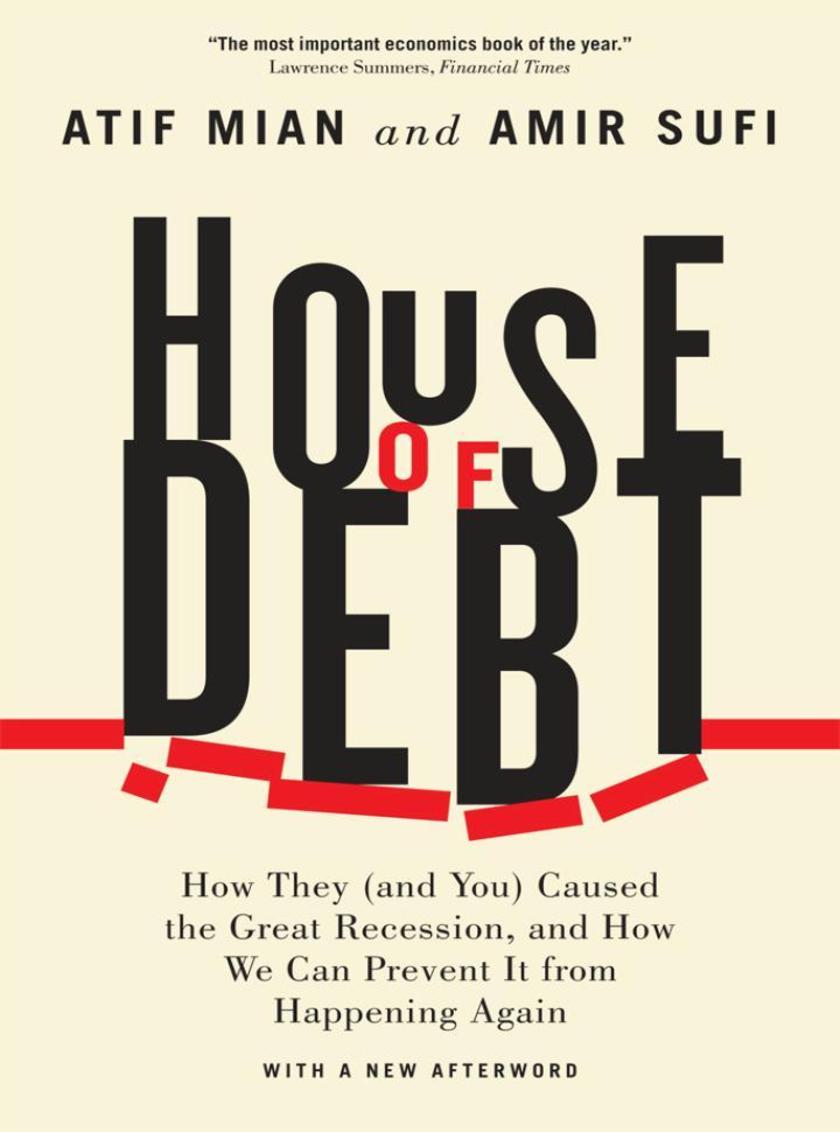
House of Debt
¥123.61
The Great American Recession resulted in the loss of eight million jobs between 2007 and 2009. More than four million homes were lost to foreclosures. Is it a coincidence that the United States witnessed a dramatic rise in household debt in the years before the recession-that the total amount of debt for American households doubled between 2000 and 2007 to $14 trillionDefinitely not. Armed with clear and powerful evidence, Atif Mian and Amir Sufi reveal in House of Debt how the Great Recession and Great Depression, as well as the current economic malaise in Europe, were caused by a large run-up in household debt followed by a significantly large drop in household spending.Though the banking crisis captured the public's attention, Mian and Sufi argue strongly with actual data that current policy is too heavily biased toward protecting banks and creditors. Increasing the flow of credit, they show, is disastrously counterproductive when the fundamental problem is too much debt. As their research shows, excessive household debt leads to foreclosures, causing individuals to spend less and save more. Less spending means less demand for goods, followed by declines in production and huge job losses. How do we end such a cycleWith a direct attack on debt, say Mian and Sufi. ?More aggressive debt forgiveness after the crash helps, but as they illustrate, we can be rid of painful bubble-and-bust episodes only if the financial system moves away from its reliance on inflexible debt contracts. As an example, they propose new mortgage contracts that are built on the principle of risk-sharing, a concept that would have prevented the housing bubble from emerging in the first place.Thoroughly grounded in compelling economic evidence, House of Debt offers convincing answers to some of the most important questions facing the modern economy today: Why do severe recessions happenCould we have prevented the Great Recession and its consequencesAnd what actions are needed to prevent such crises going forward?

Cody Simpson: Welcome to Paradise: My Journey
¥123.45
The first official all-access look into the life of singing sensation Cody Simpson. Follow Cody as he goes from singing cover songs in his bedroom to opening sold-out concerts for Justin Bieber. With never-before-seen photos, behind-the-scenes interviews, and exclusive information, this book is perfect for pop music fans and for Cody's Angels.

African-American Athletes in Arkansas
¥122.54
African-American Athletes in Arkansas

?deskettes
¥122.13
deskettes
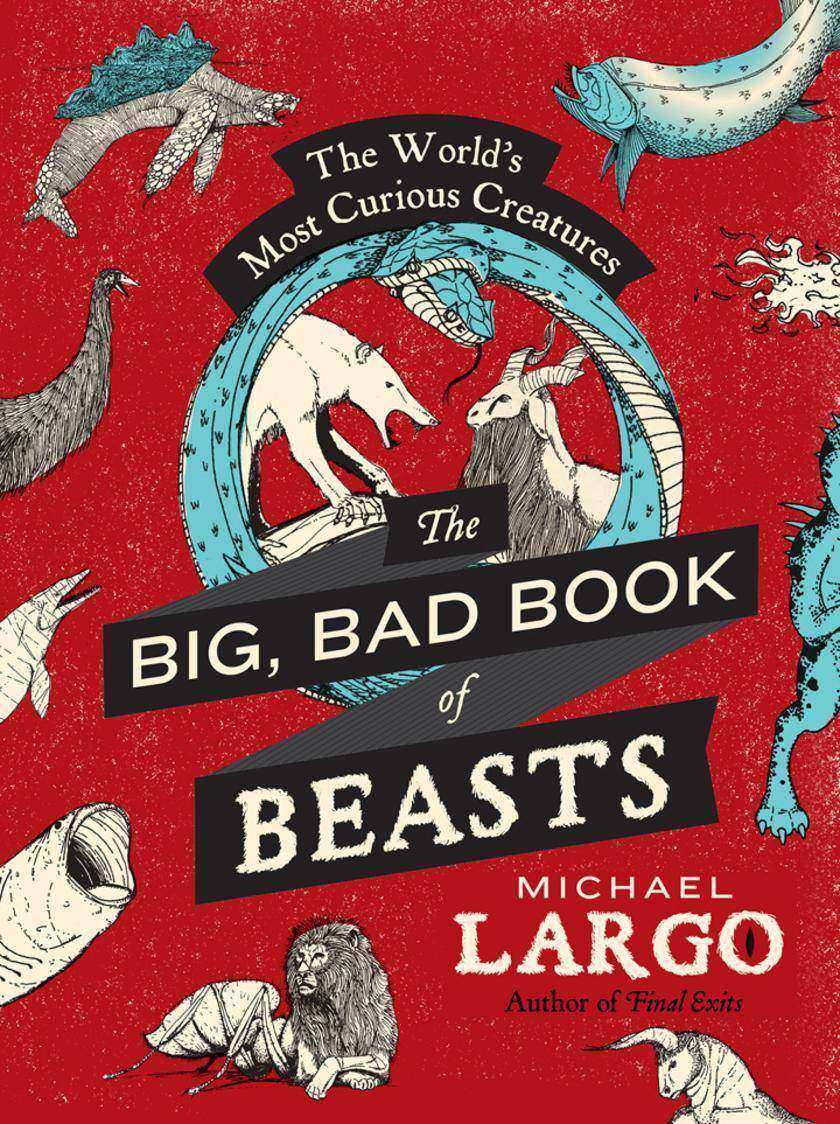
William Morrow Paperbacks
¥121.80
The world wildest collection of animal knowledge and lore! Lions, and tigers, and bears . . . and dinosaurs, dragons, and monsters. Oh my! For hundreds of years, the most popular books in the Western world next to the Bible were bestiaries, fanciful encyclopedias collecting all of human knowledge and mythology about the animal kingdom. In these pages, eagles and elephants lived next to griffins and sea monsters. Now, in The Big, Bad Book of Beasts , award-winning author Michael Largo has updated the medieval bestsellers for the twenty-first century, illuminating little-known facts, astonishing secrets, and bizarre superstitions about the beasts that inhabit our world and haunt our imaginations. You'll learn about the biggest bug ever, the smallest animal in the world, and the real creatures that inspired the fabled unicorns. You'll discover how birds learned to fly, why cats rub against your legs, and a thousand other facts that will make you look at nature in a wonderfully new way. Did you knowThe fastest animal in the world is the peregrine falcon, which reaches speeds of over 200 miles per hours. Circus ringmaster P.T. Barnum fooled many when he displayed a mermaid carcass that was later proved to be monkey bones sewed together with the body of a fish. Discovered in a remote volcanic crater in New Guinea, the Bosavi wolly rat grows to the size of a cat. President Andrew Jackson bought an African gray parrot to keep his wife company. The bird outlived them both and was removed from Jackson funeral for cussing in both English and Spanish. A to Z: From Aardvark to Zooplankton! For all ages! Includes 289 illustrations!

Jake Ransom Complete Collection
¥119.86
Bestselling novelist James Rollins brings to life the adventures of Jake Ransom, who became an orphan when his archaeologist parents disappeared on a dig three years ago. They left behind tokens—half of an ancient coin for Jake, and the other half for his sister Kady—that fit perfectly into one of their famous discoveries. When everything falls into place, Jake and Kady find themselves in the mysterious, bizarre world of Pangea—home of vicious raptors, bloodthirsty plants, and dark Mayan and Egyptian rituals. And whatever caught their parents is still hungry.The books described as "Indiana Jones for tweens" are perfect for fans of Alex Rider, Percy Jackson, and National Treasure. Includes Jake Ransom and the Skull King's Shadow and Jake Ransom and the Howling Sphinx.

Coen Brothers (Text-Only Edition) - This Book Really Ties the Films Together
¥117.72
From such cult hits as Raising Arizona (1987) and The Big Lebowski (1998) to major critical darlings Fargo (1996), No Country for Old Men (2007), and Inside Llewyn Davis (2013), Ethan and Joel Coen have cultivated a bleakly comical, instantly recognizable voice in modern American cinema. In The Coen Brothers: This Book Really Ties the Films Together, film critic Adam Nayman carefully sifts through their complex cinematic universe in an effort to plot, as he puts it, "e;some Grand Unified Theory of Coen-ness."e; The book combines critical text-biography, close film analysis, and enlightening interviews with key Coen collaborators-with a visual aesthetic that honors the Coens' singular mix of darkness and levity. Featuring film stills, beautiful and evocative illustrations, punchy infographics, and hard insight, this book will be the definitive exploration of the Coen brothers' oeuvre.

Romey's Order
¥117.72
Romey's Order is an indelible sequence of poems voiced by an invented (and inventive) boy-speaker called Romey, set alongside a river in the South Carolina lowcountry.As the word-furious eye and voice of these poems, Romey urgently records--and tries to order--the objects, inscape, injuries, and idiom of his "e;blood-home"e; and childhood world. Sounding out the nerves and nodes of language to transform "e;every burn-mark and blemish,"e; to "e;bind our river-wrack and leavings,"e; Romey seeks to forge finally (if even for a moment) a chord in which he might live. Intently visceral, aural, oral, Atsuro Riley's poems bristle with musical and imaginative pleasures, with story-telling and picture-making of a new and wholly unexpected kind.




 购物车
购物车 个人中心
个人中心



